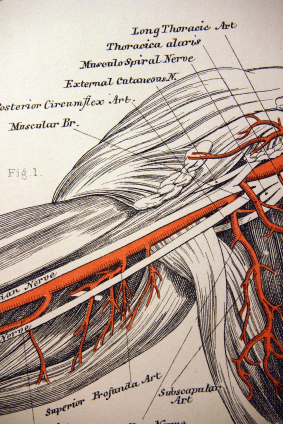 Protein Intake During Exercise
Protein Intake During Exercise
Many coaches, athletes and trainers recognize the importance of protein for posy-exercise recovery and as part of a well-balanced diet to support muscle mass. However, little thought is usually given to protein intake during exercise. When it comes to exercise nutrition, carbohydrates dominate, and for good scientific reason. While carbohydrates should serve as the main fuel source for exercise, protein’s importance is just beginning to be recognized within the scientific community.
Carbohydrate Intake During Exercise
While carbohydrates in the form of sugar make for great-tasting exercises beverages, their importance for exercise performance goes far beyond palatability. During exercise, muscle glycogen serves as the most efficient fuel source to support muscle contractions, especially when the exercise intensity is relatively high. When muscle glycogen stores start to run low during exercise, performance may be compromised. Carbohydrate intake during exercise can help spare muscle glycogen stores, which in turn can delay fatigue and allow exercise intensity to be sustained.
Protein Intake During Exercise
Protein’s contribution to exercise performance has been generally ignored. Common measurements designed to look at what type of fuel is being used during exercise, such as the Respiratory Exchange Ratio and Respiratory Quotient, generally don’t even consider protein and only consider carbohydrates and fats. One of the reasons protein is usually treated like the plague during exercise is that the amino acids within protein have to undergo more processing the carbohydrates before they can be used for energy. The nitrogen group of amino acids must first be removed, which then leaves a carbon skeleton that can be used for energy production within muscles. Because of this less efficient process, protein drinks are generally considered best for recovery and not for performance enhancement.
Groundbreaking Protein Research
New studies are beginning to cast doubt on the traditional belief that protein intake during exercise is a big waster of time. A recent study by Ivy gave athletes a drink containing approximately 15 grams of carbohydrates every 20 minutes during cycling exercise or the same drink with about 4 grams of protein added in. To the surprise of protein nay-sayers everywhere, the carb/protein drink extended exercise time untilfatigue by a whopping 36% compared to the carb-only trial.
A more recent study by Saunders extended on the findings of Ivy. This study found that carbohydrate/protein beverages consumed during exercise not only improved exercise performance, but helped improve exercise performance 12-15 hours later as well. IN the first cycling exercise session, carb/protein beverages improved time until fatigue by 29% over carb-only beverages. An even greater effect (40% increase in time until fatigue when consuming carb/protein beverages) was found during the following exercise session. This study has practical implications for hard-training athletes that practice twice a day or for those who may hit the weight room in the morning and then have practice later in the day.
Conclusion
While recent evidence suggests protein can extend the benefits of carbohydrate supplements during exercise, more studies are needed to determine exalt how this occurs. In the meal time, many athletes may have much to gain by ingesting 2-4 grams of protein every 15-20 minutes during the exercise. At worst, they will be supplying their bodies with amino acids to help jump-start the recovery process. At best, they may find themselves able to practice harder and longer, cross the finish line faster or even perform better late in the game.
1. Ivy,J.etc al. Effect of a carbohydrate-protein supplement on endurance performance during exercise of varying intensity. Int J Sport Nutr Exerc Metab. 2003 Sep;13(3):382-95
2. Saunders, M. et al. Effects of a carbohydrate-protein beverage on cycling endurance and muscle damage. Med Sci Sports Exerc. 2004 Jul:36(7):1233-8.
About the Author:
Cory Davidson earned a Bachelors degree in Exercise and Sports Science from the University of Delaware and a Masters in Exercise Physiology from Adelphi University. He works as a researcher in the Nutrition Department for Us Nutrition Inc.
 Bobby Reisz and the Peak Performance Team are dedicated to powering your athletic, fitness and weight loss goals!
Bobby Reisz and the Peak Performance Team are dedicated to powering your athletic, fitness and weight loss goals!
Speak Your Mind